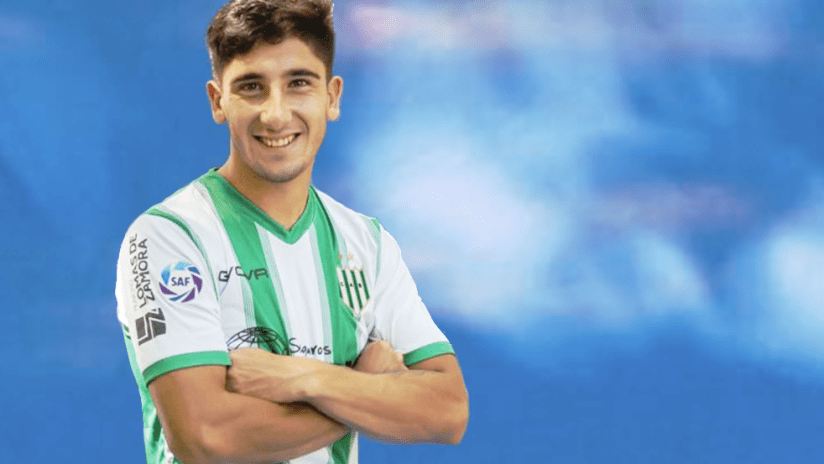This is an option that’s been used repeatedly over the last three seasons, ever since moves that injected large amounts of Allocation Money into the Portland Timbers’ portfolio allowed the squad to become a primary focus. We saw it when Jorge Villafaña returned to the team from Santos Laguna in 2018, displacing the incumbent, Zarek Valentin, at left back. And we saw it this winter, when forwards Jarek Niezgoda and Felipe Mora were brought in to compete with Jeremy Ebobisse.
But adding players like Claudio Bravo -- the Argentine left back who became the newest Timber on Thursday -- isn’t just about adding a new option. Not only are the Timbers’ fullback positions in flux, but Bravo is not being brought in to bolster the middle of the roster. Instead, the acquisition of the 23-year-old defender is about another reality of Portland’s roster-building, if not a reality of the entirety of Major League Soccer:
Within a strengthening league, holding steady means you’re falling behind; if not absolutely, then relatively. Every team, even the ones at the bottom of the standings, is improving. To stay competitive, you not only have to keep up, but you also have to do so faster than your competition.
“Signing a player with Claudio Bravo’s skillset and ability is a tremendous positive for the club, and our expectations for him as a Timbers player are extremely high,” Gavin Wilkinson, the Timbers’ President of Soccer, said in the team’s announcement. “We look forward to integrating him into the group, and once he is acclimated, we are confident he will be a very effective and dominant left back in our league.”
In his end-of-season press conference, Wilkinson alluded to Bravo, saying his team was bringing in somebody who would among MLS’s top five at his position. In some ways, that’s saying a quiet part out loud. More often than not, teams try to temper expectations - under-promise and over-deliver. Between the lines, it seems Wilkinson’s choosing a different tact. It’s a high bar to bring a left back in when Portland had Villafaña, had Marco Farfan on the roster. Wilkinson, in his subtext, is saying Bravo’s worth it.
Bravo becomes the latest from an Argentine pipeline that has redefined Portland soccer. The most prominent example is Diego Valeri, who signed with the Timbers in early 2013 from Lanus. But there’s also Sebastián Blanco, as well as Tomás Conechny, as well as former Timbers favorites, like Maxi Urruti. People like Lucas Melano, Gastón Fernández and Norberto Paparatto have also made valuable contributions to the Timbers, and while not every Argentine has delivered on their hype, almost all have provided value.
To ask any new Timber to match Valeri or Blanco is too much, but there are real expectations around the signing of Bravo. Over the last two-and-a-half seasons, the U-23 international has been a consistent starter at Banfield, performing to a level that’d led to speculation of moves to Europe or one of Argentina’s “grandes” (the five most prominent clubs in Argentina). In a soccer world rampant with transfer gossip, it’s hard to tell if the most fanciful means much. But Bravo was starting to forge paths beyond Banfield. Ultimately, that path led north.
What Bravo brings is speed for his position, with coverage around Argentine soccer lauding his ability to match the pace of most of the Argentine league's wide attacking threads. It’s a deceptive speed, though. With long strides that tend to extend far behind his body, the ground Bravo covers becomes deceptive. You may hear the word “gliding” a lot. He’s willing and versatile in his tackles, but he’s also foul-prone, accumulating a high rate of yellow cards over this time with Banfield. Thanks to his speed, he’s able to contribute going forward and be aggressive surging into spaces teams tend to give to fullbacks. He’ll force teams to account for him.
“Claudio is a young talent who has all the attributes for a great future,” Giovanni Savarese, Portland’s head coach, said about Bravo. “We are very excited to have him, and his skillset is a very good balance of offense and defense at his position.”
The last player Portland acquired from the Argentina wasn’t an Argentine. It was Jorge Moreira, a player who temporarily changed the way the Timbers played. Though his loan from River Plate expired early in the 2020 season, the Paraguayan international warped the field in the attacking third. At times, that value came at a cost defensively, but when Moreira was fully integrated into the team — when Portland started to strike the right balance — the River import was one of the more influential MLS players at his position.
Bravo is a different player than Moreira, but in some ways, that could be a good thing. He’s younger, has a more all-around profile, and having spent his time in Argentina outside of the league’s grandes, he’s had to strike Savarese’s balance. He was on the doorstep of the titans, not part of them, and as a result, he’s used to facing the talents that end up at Boca, River, Independiente, Racing, and San Lorenzo. He’s used to facing the level he’s grown into.
Now, it’s time for his next step - a step that comes with expectations. Wilkinson has laid them out. Portland needs to keep moving forward. Bravo is a way to do so.












